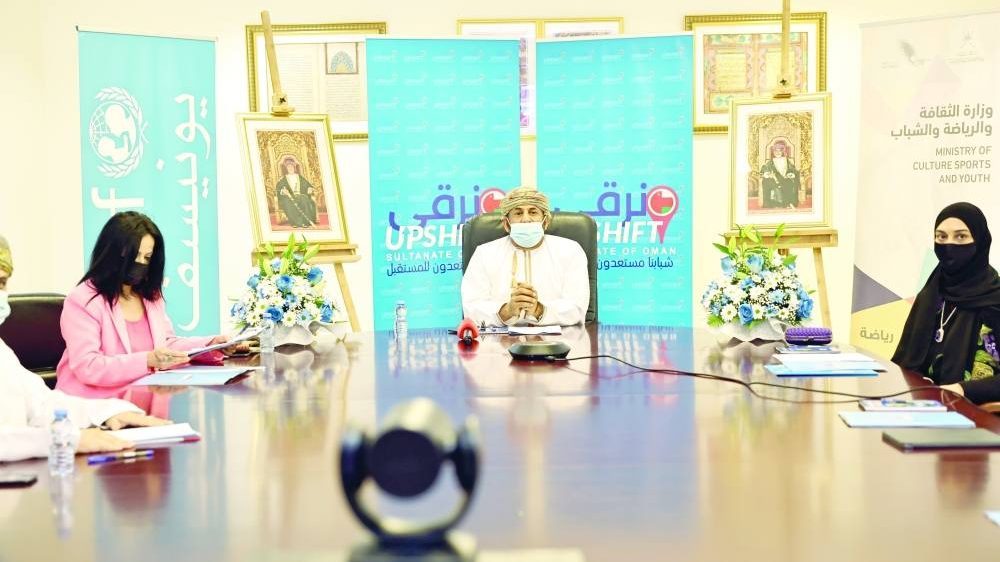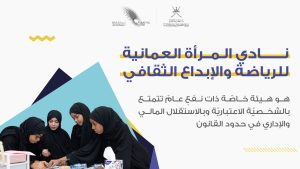The Ministry of Culture, Sports and Youth in partnership with UNICEF Oman and with the support of Sultanate’s private sector today launched “UPSHIFT”, an initiative which provides young people with the skills they need to thrive in a competitive labour market and to become agents for positive social change.
The new national initiative is fully in line with Vision 2040 which seeks to put young people at the very heart of Oman’s development goals.
“UPSHIFT” is an initiative designed to meet the urgent need for expanded education, training and employment opportunities for young people.
The programme is based on the outcome of research conducted by MoCSY and UNICEF on the situation of youth and adolescents in Oman as well as a comprehensive survey mapping out the key youth programmes in the Sultanate. UPSHIFT offers an important opportunity for Oman to showcase its innovative approach to youth development.
Companies in multiple sectors have pledged their support for UPSHIFT by offering financial and in-kind contribution.
“Young people are our greatest asset and it falls on them to ensure that our nation continues to prosper and develop,” said Sheikh Rashad Al Hinai, Undersecretary for Youth at the Ministry of Culture, Sports and Youth. “With the support of the private sector, “UPSHIFT” will provide them with opportunities to develop employability and entrepreneurship skills, and empower them to become agents for positive change in their own communities.”
“Supporting young people and adolescents to survive and thrive and reach their full potential is a key component of UNICEF’s work in Oman,” said Lana Al Wreikat, UNICEF Representative in Oman. “UPSHIFT is already impacting hundreds of thousands young people globally and I am delighted this initiative will now also support adolescents in Oman.”
UPSHIFT is an adaptable and scalable approach. In the first year, it will launch in three governorates: Muscat, Dakhliyah and Al Batinah South.
There are three main packages. The first is for those preparing to enter the job market. Participating companies will establish an in-house unit to provide employability skills, training and recruit trainees for apprenticeships, internships and on-the-job learning. Academic institutions will also be invited to support skills building.
The second component is the social enterprises virtual training package for young people aged 18-29 who will have the opportunity to participate in youth challenges and incubation programmes, receive technical coaching and, potentially, seed money to fund successful ideas and solutions.
The third component is for 10-to-18-year-olds in schools and covers psychosocial skills for resilience and development, transformational leadership, innovative thinking and problem solving.










